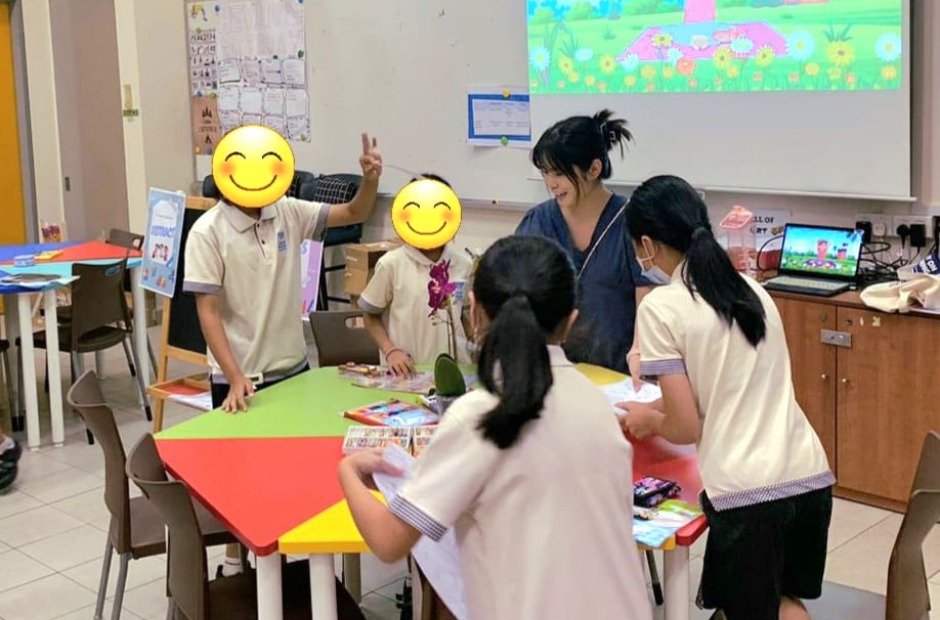“When a person is resource scarce, their worldview is different,” says Mr Lim Yu Kee, director of the Uplift and Educational Support Branch (UESB), “and it’s very hard to break out of it.”
Yu Kee knows what it’s like to come from a background that is resource poor. Growing up in a one-room rental flat with his parents and brother with little money to spare, he has risen from humble beginnings. From entering Raffles Institution to UC Berkeley and Stanford University under a PSC Scholarship, he became a teacher, principal and is now head of UESB.
Coordinated systemic support
His years as an educator have also put him in regular contact with students from disadvantaged families, further cementing his belief that, in order to help these children, one has to look at their circumstances holistically – not in silo – and tackle the issues on a systemic level.
In 2018, MOE’s then Second Minister Indranee Rajah launched the Uplifting Pupils in Life and Inspiring Families Taskforce, or UPLIFT for short, an inter-agency collaboration involving various government ministries to find ways to support students from disadvantaged families. Through its engagement, the taskforce identified the need to strengthen existing local coordination efforts to help these students and their families.
The Uplift Programme Office (UPO) was set up in 2019 as a Ministry of Education unit to engage, coordinate and cultivate a variety of community partnerships to work with schools. In 2020, to further streamline efforts to support our students, the unit was brought under UESB.
“Although we can see all the pieces of the puzzle,” Yu Kee says, “it is up to the schools on the ground to put together the individual pieces to help the child, whether these relate to financial, social-emotional or academic issues.
“That is why we need better coordination to synergise the efforts of teachers with members of the community, such as social workers and volunteers. Our aim, ultimately, is to help the students and families help themselves.”
Tackling absenteeism
One problem that pops up regularly on many a school management’s radar is student absenteeism, something that UPLIFT tries to address.
Presenting issues of absenteeism tend to differ for primary and secondary school students, Yu Kee explains. For the former, their reasons are usually family-related, such as lax or permissive parenting. For the latter, their reasons tend towards the personal, such as relationship problems or lacking motivation.
“Children don’t just jump from perfect attendance to not attending school completely. Should their attendance start to ‘dip’, we want to catch this early before it starts deteriorating into long-term absenteeism. To do that, we need to work upstream.
“This is where coordinated efforts come in. To really help a child and his family involves multiple agencies working together. It’s not something that only 1 agency or division can solve.”
Inspiring students beyond financial aid
Yu Kee adds. “We want these kids to know that school is more than homework. We want to motivate and inspire them, have career motivating activities for them to see beyond their limited worldview of what they can do, through learning journeys, job shadowing… we also want to bring in significant adults in their lives, as many of these kids have parents who are absent.”
He lists a few of the community partners that have stepped up. “We have partnered with SPH Chinese Media Group in the ‘Reading with You’ programme for schools where the volunteers from the Group, together with those from Nanyang Poly and CDAC, engage students to strengthen their Chinese language fluency and understanding of current affairs, expand their world views, and serve as positive role models to inspire the students.”
Other partnerships include The Rice Company Limited offering students free online arts modules; Science Centre Singapore providing mentors to selected students for their Abbott Young Scientist programme; and Heartware Network enlisting JC or IP student volunteers to tutor targeted primary school students.

Mr Lim Yu Kee, director of the Uplift and Educational Support Branch.
Gotong royong to support every child
One of UPLIFT’s initiatives is the UPLIFT Community Pilot, where Town-Level Coordinators (TLCs) are sited at the pilot sites to help coordinate school and community’s support for students. UPO flags up those who show early signs of absenteeism to the pilot schools and their corresponding TLCs, who then work together to help them and their family, roping in other agencies in the community.
The TLC organises community support to tackle long-term absenteeism by taking into account the child’s family and community-based needs. One such initiative being piloted is the Family Befrienders’ Programme, where volunteers are recruited and trained to lend support to the child’s family. This can range from giving parenting tips to offering practical advice to simply providing a listening ear.
“This is based on the idea of communities helping one another through the ‘kampung spirit’,” Yu Kee says. “If you think about our kampung in the old days, the school was not only sited in but is part of the community. In fact, very often, teachers were respected as the village elders.”
As a kampung, the community kept its eyes open to watch for anyone in the village needing help. In similar fashion, Yu Kee hopes that teachers, social workers and volunteers can synergise their efforts by ‘triangulating the needs of the child’ – understanding what the child’s challenges are in school and beyond the school fence and coordinating better in their joint efforts to offer up possible solutions to his problem.
“When I was a principal at Bedok Green Secondary,” Yu Kee recalls, “I learnt not to judge a child… It doesn’t address the issue. It’s difficult for someone on the outside to truly understand what the child is going through.
“His father could be a driver clocking in long shift hours or his mother could be having mental health problems. Only when you sit down with the child can you begin to empathise with his situation.”
Enabling students from within the school
One upstream remedy from MOE is to provide after-school programmes to keep these students in school. At the primary school level, students have access to school-based Student Care Centres (SCC). At the secondary school level, they have GEAR-UP programmes.
“The idea behind SCC is to support families while both parents are working so they have a supervised environment for their children,” Yu Kee says. “They get proper meals, there’s some structure in place and there’s homework supervision time.”
GEAR-UP, on the other hand, has been designed specifically for secondary school students to strengthen their connection to school. Having begun in 2019, MOE is on track to expand it to 120 schools by 2020. It offers after-school activities and facilities such as dedicated rooms in schools with pool tables or computer games that the students can hang out in after school. The impetus is to engage the older students, help them build connections and motivate them through peer-learning.
“If students stay in school, the school can try different methods to support them, such as bringing in community partners,” Yu Kee says.
“It is only when the child is not in school, who’s only coming to school every few days, or when we have lost sight of the child, then we start to worry over what’s happening to him or her outside of school.”
Boosting self-worth
Yu Kee is very clear that all these various strands of work should conjoin for one purpose: to make the child feel valued.
“Particularly at an age when students are in secondary school, absenteeism and other issues often manifest because they don’t necessarily feel valued, whether it’s by the school, their family or their peers, and most importantly, by themselves.
“That is why this aspect of motivation and engagement is so important. We want to support each young person in their path to self-discovery.”




.jpg)

584663a7a8a66eb2afccc900c73e6f2e.jpg)